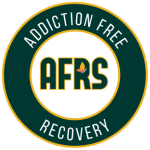Zoloft, also known as sertraline, is a medication commonly prescribed for anxiety and depression. However, when someone decides to stop taking Zoloft, they may experience Zoloft withdrawal symptoms. These symptoms can vary from mild to severe and are influenced by various factors. If you’re considering discontinuing Zoloft, it’s essential to understand what to expect during the withdrawal process. This article will guide you through the signs, symptoms, and duration of Zoloft withdrawal, along with tips for managing anxiety, depression, and other common withdrawal symptoms.
What is Zoloft Withdrawal?
Zoloft withdrawal occurs when someone stops or reduces their dose of Zoloft too quickly. This medication is a selective serotonin reuptake inhibitor (SSRI) that helps regulate serotonin in the brain. When you suddenly stop taking Zoloft, your brain has to adjust to the sudden drop in serotonin levels. This adjustment can cause various symptoms as your body tries to recalibrate itself.
Common Symptoms of Zoloft Withdrawal
The withdrawal process can affect both your physical and emotional state. The most common symptoms include:
- Physical Symptoms
Dizziness, nausea, headaches, fatigue, and muscle aches.
- Emotional and Psychological Symptoms
Anxiety, irritability, and depression may resurface during this time.
These symptoms can range from mild to severe, depending on the individual and the rate at which they taper off the medication.
Recognizing the Signs
Physical Symptoms: Dizziness, Nausea, and More
Zoloft withdrawal often manifests through various physical symptoms.
Some of the most common physical signs include:
- Dizziness. Many people experience lightheadedness or a sense of imbalance.
- Nausea. Feeling queasy or even vomiting is a common symptom.
- Fatigue. A general sense of tiredness and low energy may occur.
These symptoms can be troubling, but usually subside over time as the body adjusts.
Emotional and Psychological Symptoms: Anxiety and Depression
The emotional and psychological effects of Zoloft withdrawal can sometimes be even more challenging.
Some individuals may experience:
- Anxiety
Increased feelings of worry, nervousness, or panic attacks can arise.
- Depression
Symptoms such as sadness, hopelessness, or a lack of interest in daily activities may resurface.
These emotional challenges can be overwhelming, but they’re temporary, and managing them is possible with the right approach.
Duration of Zoloft Withdrawal
The duration of Zoloft withdrawal can differ significantly between individuals. While some may only experience withdrawal symptoms for a few days, others may endure symptoms for several weeks. In some cases, the symptoms can last even longer, especially if the medication has been used for a prolonged period or in high doses. Understanding the typical withdrawal timeline can help you manage your expectations and prepare for the changes your body and mind may experience.

Below is a more detailed breakdown of what to expect during different stages of Zoloft withdrawal:
- Short-Term Withdrawal (1-2 Weeks)
For many, the first signs of withdrawal appear within 1-2 days of reducing or stopping the medication. Symptoms can be mild to moderate and often peak during the first week. After this period, symptoms may begin to subside gradually. - Long-Term Withdrawal (3-4 Weeks)
Some individuals experience symptoms that persist beyond the first couple of weeks. Symptoms such as anxiety, depression, and insomnia may still be present during this phase. However, they generally start to decrease as the body adjusts.
- Extended Withdrawal (Over 4 Weeks)
In more severe cases, Zoloft withdrawal symptoms may last for more than a month. Factors such as the duration of Zoloft use, dosage, and individual health conditions can contribute to this extended withdrawal period. Having professional support to manage the symptoms during this time is crucial.
Factors Influencing the Duration of Zoloft Withdrawal
Several factors can influence the duration of Zoloft withdrawal.
These include:
- Dosage. Higher doses of Zoloft can result in a longer withdrawal period.
- Duration of Use. Long-term use of Zoloft may cause more severe and prolonged withdrawal symptoms.
- Health and Age. Withdrawal may be more protracted for individuals with other health conditions or older individuals.
- Tapering Approach. Gradual tapering off the medication may reduce the severity and duration of symptoms, whereas stopping abruptly may lead to more protracted withdrawal.
Typical Duration and Symptoms of Zoloft Withdrawal
| Withdrawal Phase | Duration | Common Symptoms | Description |
| Initial withdrawal | 1-2 Days | Dizziness, Nausea, Fatigue | Symptoms typically appear soon after reducing or stopping Zoloft and range from mild to moderate. |
| Early Withdrawal | 1-2 Weeks | Anxiety, Irritability, Insomnia | Symptoms peak during this period but decrease as the body adjusts. |
| Late Withdrawal | 3-4 Weeks | Depression, Headaches, Low Energy | Symptoms begin to subside gradually but may persist for a few more weeks. |
| Extended Withdrawal | 4+ Weeks | Severe Anxiety, Persistent Insomnia, Emotional Lability | Symptoms may persist for extended periods, necessitating professional assistance for effective management. |
Managing Anxiety and Depression During Withdrawal
During Zoloft withdrawal, it’s essential to manage the emotional symptoms of anxiety and depression. Without medication, these issues may become more intense, but there are coping strategies to help.
Coping Strategies for Anxiety
Here are some effective coping strategies for managing anxiety:
- Breathing exercises
Deep breathing exercises can help reduce anxiety in moments of panic.
- Exercise
Physical activity can boost serotonin and endorphins, which may improve mood.
- Mindfulness and meditation
These mindfulness and meditation practices can help center your thoughts and relieve anxiety.
Depression Management Techniques
The following are some techniques for managing depression:
- Therapy
Cognitive-behavioral therapy (CBT) can help you work through negative thoughts.
- Support groups
Connecting with others who are going through similar experiences can provide emotional relief.
- Medication alternatives
For some individuals, other medications may be considered during the withdrawal period.
Tips for Tapering Off Zoloft Safely
If you decide to stop taking Zoloft, it’s essential to taper off the medication gradually. Stopping suddenly can increase the risk of severe withdrawal symptoms. Here are some tips for tapering safely:
- Consult with your healthcare provider. Always involve a healthcare professional in your tapering process.
- Gradual Reduction. Reducing the dose slowly can help prevent overwhelming withdrawal symptoms.
- Monitor your symptoms. Keep track of any symptoms you experience and report them to your doctor.
Importance of a Gradual Reduction
A gradual reduction of Zoloft is crucial because it allows your brain to adjust slowly to the change. Sudden discontinuation can lead to a sharp drop in serotonin levels, causing more severe withdrawal symptoms. A professional will typically help you design a tapering schedule suited to your needs.
Seek Professional Help From Addiction Free Recovery
If you’re struggling with Zoloft withdrawal, seeking professional help is highly recommended. At Addiction Free Recovery, we understand the challenges associated with tapering off medications like Zoloft. Our experienced team provides the support and guidance you need during this process.
Contact Addiction Free Recovery today for a consultation, and let us help you achieve lasting recovery.

FAQs
What are some common challenges faced during Zoloft withdrawal, and how can they be addressed?
The main challenges during Zoloft withdrawal include anxiety, depression, dizziness, and insomnia. These can be managed through gradual tapering, which reduces intensity. Consulting with healthcare professionals can guide the alleviation of symptoms and facilitate a smoother withdrawal process.
How long does Zoloft withdrawal typically last, and what factors can influence its duration?
The duration of Zoloft withdrawal varies from person to person and can last anywhere from a few days to several weeks. Factors such as dosage, duration of use, and individual health conditions influence the duration of withdrawal. The more you taper off gradually, the less intense the withdrawal period typically becomes.
What are effective strategies for managing anxiety and depression, specifically during Zoloft withdrawal?
Managing anxiety and depression during Zoloft withdrawal involves therapy, mindfulness, and exercise, which help improve emotional balance. Medications may also be prescribed as alternatives to alleviate symptoms. It’s essential to seek support from healthcare professionals to develop personalized treatment plans during this time.
Why is a gradual reduction necessary when tapering off Zoloft, and how can healthcare professionals assist in this process?
A gradual reduction is essential because it helps your brain adjust to the drop in serotonin, preventing intense symptoms. Healthcare professionals guide you through tapering schedules tailored to your needs, minimizing discomfort. A careful approach ensures a safer and smoother withdrawal process.
What are some recommended sleep hygiene practices to combat insomnia during Zoloft withdrawal?
To combat insomnia during Zoloft withdrawal, try establishing a regular sleep routine and avoiding stimulants like caffeine late in the day. Creating a calming environment and practicing relaxation before bed can improve sleep quality. Consistency in sleep habits significantly helps manage withdrawal-related sleep disturbances.

























